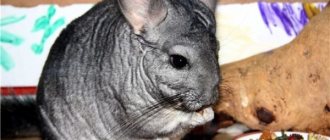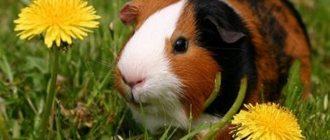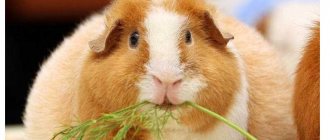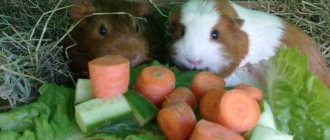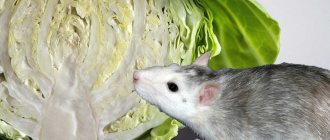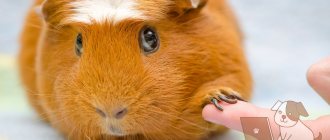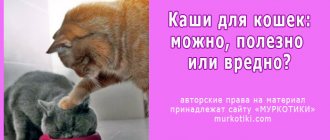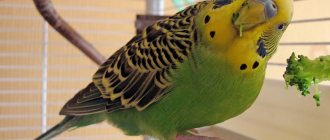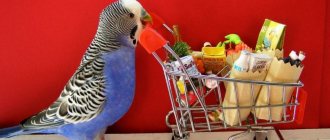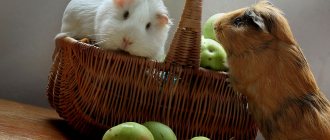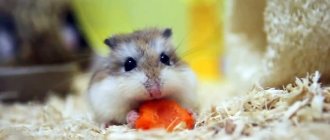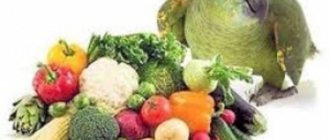If a chinchilla rodent lives in your house, you need to understand that nuts must certainly be present in its diet. It is important to choose the right balanced diet for your pet; this will be the key to its healthy and harmonious development. Many pet owners ask questions: can chinchillas eat walnuts, peanuts or almonds? Let's answer these questions to understand what nuts a chinchilla can eat.
Familiar treats
The most accessible are walnuts, so we will begin to consider this issue with them. Veterinarians differ in their answer to the question: Do chinchillas need walnuts?
Some experts believe that nut kernels are an excess in the diet, while others argue that nuts must certainly be present. It is worth watching your pet when introducing this type of nut into its diet.
Important. Do not forget that the kernels contain a large amount of fat, so you need to give a small piece of the kernel once a week.
Can chinchillas have walnuts and chestnuts?
Chinchillas are herbivores and it is natural for them to eat vegetation. Their diet should be high in fiber and protein, but low in fat and moisture.
Approximate feed composition:
- 35% carbohydrates;
- 15% protein;
- 30% fiber;
- 4% sugar;
- no more than 3.5% fat.
In their natural environment, chinchillas eat bark. It is the main supplier of fiber. If it is not enough, their teeth become overgrown and digestion is disrupted. Be sure to also provide your pet with hay and grass.
Did you know? From one hair follicle of a chinchilla, up to 60 hairs grow, while in humans
-
only one.
Therefore, their fur coats are very thick, which allows them to retain body heat even at high altitudes in the mountains. As for fat, its excess will lead to liver damage. Therefore, giving nuts is not recommended. The table below shows the fat content of some types:
| Nut\fat content (per 100 g of product): | Seeds or pits\fat content (per 100 g of product): |
|
|
As can be seen from the table, all nuts, without exception, contain many times more fat than a chinchilla can consume. Therefore, such food is more of an exception than a healthy food.
Peanuts in the diet
This type of nut can be given to pets, but you need to understand that it puts too much strain on the liver. When offering peanuts to your pet, follow these recommendations:
- Give a nut no more than once a week.
- Give only one nut at a time.
- The product should not undergo heat treatment; any spices are contraindicated.
This product is useful in the following ways:
- Improved digestion.
- Stimulation of the reproductive system.
Seeds instead of nuts
You can replace harmful nuts with healthier seeds - pumpkin, sunflower, etc. Chinchillas will happily gnaw on such a treat: after all, in the wild, seeds constitute the main diet of rodents.
However, domesticated animals lose their living skills in the wild. Many products seem useful to them.
Roasted seeds are considered harmful: the chinchilla’s body is not equipped to digest them. There is no such food in the wild. They will be replaced by raw seeds. But in small quantities.
The fatty acids in the raw seeds make the fur shiny and thick. They have less nutrients than nuts.
Melon seeds (melon, watermelon, squash, pumpkin)
Rodents and birds love them very much. From 5 to 7 seeds, fresh and dried, are enough per day. Pumpkin seeds serve as an anthelmintic.
Apple
They do not have a special taste, and the animal does not overeat them. 4-5 seeds per day are enough. An important plus is that they contain substances that fight cancer.
Herbal
Pet chinchillas need sesame and flax seeds. They contain a lot of fat, and the amount should be limited so as not to upset digestion.
Chinchillas should not eat cherry, plum or sweet cherry pits. They contain poisonous hydrocyanic acid. Chestnut fruits will not bring any benefit either.
Hazelnut
This product is very useful for these cute furbabies. Since it contains a fairly high content of folic acid and vitamin E. These components are necessary to maintain the full functioning of the animal’s body, as well as strengthen muscle tissue and bones.
You should not completely deny your pet hazelnuts. Once every two weeks, give the animal about 1/4 of the kernel, this will be beneficial and will not harm.
Authorized Products
The list of foods that can be given to chinchillas is quite large. Animals can be fed fruits:
- Bananas,
- Apples,
- Pears,
- Figs
- Vegetables:
- Pumpkin,
- Milk corn,
- Bell pepper,
- Kohlrabi,
- Zucchini,
- Zucchini,
- Kohlrabi,
- Patissons,
- Ripe red tomatoes.
- Lettuce leaves,
- spinach leaves,
- Clover,
- Alfalfa,
- sorrel leaves,
- Dandelion leaves and stems,
- Celery,
- Chicory,
- Cornflowers,
- Vika,
- Common nettle,
- Sagebrush,
- Raspberry leaves and stems
- Strawberry leaves and stems
- Plant tops,
- Twigs with leaves of apple, pear,
- Birch and linden branches,
- Hazelnut sprigs.
- Corn (corn grains are part of the feed mixture and are given in ground form),
- Barley (given in ground form),
- Wheat (grains and bran),
- Oats (grains, bran, flakes),
- Millet,
- Buckwheat,
- Rice.
Apples, pears, as well as carrots, pumpkins, zucchini, berries can be given to animals both fresh and dried.
Some chinchillas are more willing to eat dried foods, and they are also safer for the digestive tract.
It is recommended to collect fresh grass for furry pets in places far from roads and landfills, walking pets and industrial enterprises. It is not recommended to feed grass that is wet from dew or rain. And also carefully monitor that there are no poisonous plants among other weeds.
Almond
Veterinarians recommend avoiding this product. They have a high calorie content, which leads to a malfunction in the pet’s body.
Some experts, on the contrary, believe that almonds help strengthen immune defense, and also increase resistance to various infections. If you still want to treat your pet with almonds. Be sure to consult your veterinarian.
Chinchilla nutrition in nature
First you need to find out what chinchillas prefer to eat in their normal environment. Most wild rodents live in the mountainous regions of South America, so they eat what they can find. These are flowers, branches of bushes that grow in the mountains. Mountain greens are much more nutritious than those that grow on the plains. For most breeders, finding mountain grass is a real challenge. Therefore, you need to make every effort to make your homemade diet as nutritious as possible for your pet.
Wild chinchilla
Can chinchillas have cashews?
This nut fills your pet's body with energy. You can safely add it to your diet once every two weeks. The fairly high nutritional value of this product enriches the animal’s body with useful substances.
Of course, you can pamper your pet, but most importantly, it needs to be done correctly. Consult your veterinarian regarding your shushik's diet.
Reference. Some types of food already contain nuts, don’t forget about it.
The benefits and harms of nuts for chinchillas
All rodents love nuts. In their natural environment, they can also eat grains and seeds of various plants. But these are very high-calorie and fatty foods. Therefore, they are unsafe for most rodents, with the exception of mice and rats.
Only some fatty acids contained in nuts can be beneficial to a pet's body. Excess fat leads to liver lipidosis. This is a disease in which there is excessive accumulation of fat in the organ due to metabolic disorders.
Its signs are:
- lack of appetite;
- rapid weight loss;
- vomit;
- constipation.
Considering that we are talking about a small animal, this condition can be fatal in the absence of timely treatment.
Important! Nuts are not deadly foods
—
they are simply unhealthy. Therefore, if they are introduced into the diet, then it is very rare and in small quantities.
Peanut
Peanuts are a type of bean that grows on a plant just like the common pea. It is incredibly rich in nutrients. A product in a shell is considered safer for rodents than a product that has been shelled.
But this nut is a source of aflatoxins, which are produced by fungi and are a strong poison. This substance was discovered in 1960. Presumably, the toxin affects the DNA in liver cells, causing irreversible changes. In addition to peanuts, corn and cottonseed can also be affected by the same fungus.
Many chinchillas are given peanuts as a treat without causing any ill effects. But you should buy food only from trusted manufacturers and start giving any new food in small portions.
Pine nuts
Pine nuts are the edible seeds of the pine pine tree. They contain a huge amount of fat - 68 g per 100 g of product. And this means that they are completely unsuitable for chinchillas, who can only consume 3.5 g of fat per 100 g of food. Remember, when they say that a pet eats a certain product, this does not mean that its consumption is safe.
Hazelnut
Hazelnuts contain slightly less fat than pine nuts - only 60 g per 100 grams. But it is also too greasy for your pet. Those who give hazelnuts to chinchillas adhere to the rule - no more than once every 2 weeks, and no more than 1/4 of the kernel.
Almond
Despite the fact that sweet almonds also contain quite a lot of fat - 49.9 g, they are more beneficial for rodents than other types of nuts. Almonds protect the body from diabetes and cardiovascular diseases. Thanks to its antioxidant properties, it is able to remove any toxins from the body. But the amount of this product in the diet should also not exceed a quarter of a kernel per 2 weeks.
Cashew
The amount of fat in cashew nuts is 48.5 g. But they contain vitamin E, which can prevent respiratory problems. Therefore, some owners occasionally indulge their pets with this nut, despite its high fat content.
Tree branches as toys
It is also worth noting that branches of various trees are often used as toys for chinchillas. The animals are quite active by nature. They just need something to do while they are in the cage. If a chinchilla gets bored, bad habits may develop as a result, for example, one of the most common is fur pulling.
The appearance of bad habits in a pet will ultimately negatively affect the general physical condition of the chinchilla. Therefore, it is so important that every owner takes care of the presence of tree branches in his pet’s cage.
Chinchillas can tinker with tree branches in their cage for a very long time, which will provide them with a fun activity for a fairly long period of time and will not let them get bored if the owner for some reason cannot pay attention to his animal.
